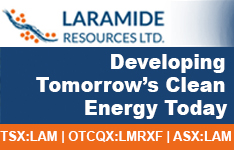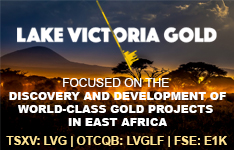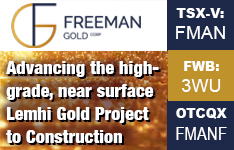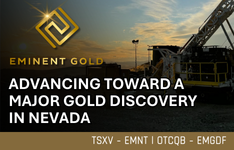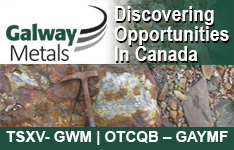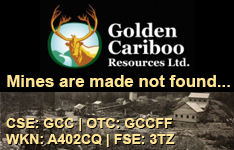The Gold Report: Frank, thanks for joining us today. Let's start with what lessons you've learned from the markets in the past year.
Frank Holmes: I've been through the most incredible launching of HIVE Blockchain Technologies Ltd. (HIVE:TSX.V; PRELF:OTC), raising $200 million in the last quarter of 2017 and seeing the stock go up sixfold and then come down 90%. Bitcoin, Ethereum are similar stories. I've never seen a spectacular bull and bear market all within 12 months' time. I think it all relates to this digital world we are living in, from algos from stock trading to high frequency trading. I've been writing and talking about this high frequency research for a while now, where programs can read sentiment and word choice, like UDOCS uses Google to look for an answer to a question. They call it NLP, which stands for natural language processing. It's on steroids for the quant funds, and they've really morphed this market. That's a big lesson I learned this year.
And on that journey through the digital space, I got to meet a young guy, 38 years old, Gabe Leydon, who started a company called Machine Zone Inc. And in 10 years, he's done up to $6 billion in revenue. He processes 500 million transactions per second in 32 languages, for boys to young men who are playing video mobile games. It's unbelievable how fast this is changing. A kid in Russia could be talking to someone in Colombia, speaking to someone in Italy and someone who's in Texas, all at the same time. And the software translates the languages. So there's no doubt this is showing up in markets, both as opportunities and also as volatility.
TGR: On the macroeconomic side, what trends do you see carrying into 2019?
FH: When we look at a monetary policy, it's money supply and real interest rates. And when we look at fiscal policy, it's tax and tariffs and regulations. So you can recognize this rotation, and you can create a simple model.
One of the best indicators we follow at U.S. Global is PMI, purchasing managers' index. It's forward looking. It resets every six months. Whenever the one-month reading falls below the three-month moving average, historically there's a 51% probability that commodities and base metals will fall over the next three months. But when the latest reading stays down for three months in a row, it jumps to something like an 80% probability that six months from now we're going to see commodities much lower.
The global PMIs actually started unraveling in April, and we're even seeing that pain six months later. And it has not stopped. Now, the global reading is still above 50, which means the global economy is still expanding. But the trend is down, and now we're seeing these layoffs from General Motors, for example. BMW is going to have, for the first time since 1990, negative sales in China. So I think that this PMI is no doubt an important leading indicator related to production, exports, imports, etc. It's not bullish at this stage. I think the tariff war has only exacerbated that. We're going to have to live with this sort of sloppiness until halfway into next year.
TGR: It's really interesting because a number of large firms like Goldman Sachs have come out predicting the rise of commodities next year. But from what you're saying, it seems like commodities will stay on the low side and would not see a rise, based on the PMI. What are your thoughts on this?
FH: Well, I think the only thing that would be the catalyst for that would be a change in the U.S. battle with other countries to lower their tariffs. It's an unlevel playing field. It was explained to me by one of the cabinet secretaries in the White House. He was saying that his son is going to McGill University, and for him to send a baseball bat up to his son, it's levying over $18 as a tariff, as a tax. But sending a hockey stick down to the U.S., anything under $600 is de minimis.There's no tariff on that. A lot of these different countries have incredible tariffs, and they all want to sell into America's $13–14 trillion consumer nation. That's a big part with China. We can't sell to it, but it can sell to us. And at the same time, it steals our patents, and then it comes back with a cheaper product to sell around the world. I think that unless there's a real change and China settles up, this is going to be a headwind.
But what's really interesting is the market has already discounted many of these stocks, not the small-cap stocks or the microcap stocks but the bigger-cap stocks, 6% dividends—whoever thought of that—and low cash flow multiples, strong ability to pay dividends and not have them crash. I think that a lot of the worst is over in that commodity crunch, but I don't think there's any rising market until we get a peak in U.S. real interest rates. That is, rates are going to start to fall or there's a trade settlement with China. If you get both, I think within 30 days the PMIs will start to ratchet up.
TGR: What is your crystal ball telling you? Do you think the Trump Administration will be able to negotiate trade settlements with China?
FH: I think if anyone's going to be able to do it, it's definitely going to be Mr. Tough Guy, who likes that role. I don't like his style, but he's the master of game theory. I was out with a young PhD who went to Stanford applying game theory to macroeconomic models, and she was telling me that most of her friends couldn't stand that she said Trump was going to win. In her reasoning, she says it's not about liking him; rather, he's a master of applying game theory. And when you look at what he's done and what he continues to do, then it looks like the odds could favor Trump is going to win because China needs us, we don't need it. It needs our $13 trillion economy.
TGR: Along the same lines, do you think that interest rates are about to peak or have peaked? The Federal Reserve chair has modulated his talk in the last month or so.
FH: I think the Fed is going to look at Christmas sales and tally the numbers. But what's going to happen in the first quarter of next year is all the tax benefits for the lower corporate tax break are going to be gone for the growth in our corporate earnings. That's going to slow down the year-over-year growth rate. A lot of quant funds use this momentum, looking at not only revenue last quarter over forward quarters, but cash flow last quarter over forward quarters and earnings last quarter over forward quarters. This year it's been ripping. It's been very, very healthy and strong for the public companies. But that year-over-year change is going to start having a new base starting next year.
TGR: So in a sense it's uncharted waters.
FH: Yes. I think one has to make sure that they're balanced in their equation of debt to equity. But there's no doubt the Fed seems to be on a suicide mission with raising rates.
I was in D.C. recently, and I had the wonderful experience of going to the Chinese embassy and hearing about free trade and trade and all the related issues. And then I went over to Capitol Hill and the Senate and listened to debates and discussions. I think the Chinese underestimated how many Americans distrust them. I guess they like buying cheap products at Walmart. But it's not just a Trump versus them. It's both Democrats and Republicans. It's one thing where the New York Times agrees with Trump and the Washington Post. I think that was the underestimation.
TGR: Let's turn to commodities. What commodities do you think will do better than others in 2019?
FH: Copper is one of the commodities that took it on the chin faster with the PMI turning negative, and it's probably oversold. And there's not a big growth of supply. If you believe in the electrification of the world, the growth in data centers, the growth in the Amazons and the Googles of the world, then you know they all need these data centers, and they all need copper wiring. And then you come along with Tesla and other electric cars, and they all use five, six times the amount of copper than a gasoline-powered car. I don't believe that trend is going to leave us. And if you use solar, you still need a lot of additional copper. I've remained very bullish on copper. I think it's one of those metals that will just surge if you get two things at the same time, rates falling and negotiations with China settled.
TGR: What's your outlook on precious metals?
FH: I remain very bullish on gold. I remain bullish because there is peak gold. There was peak oil. In 2005 that was a great concern until the frackers came along. There are no frackers for the gold space, though. The only thing I've seen that interests me is a new company coming out called GoldSpot Discoveries Inc., and it's using artificial intelligence (AI). Goldcorp Inc. (G:TSX; GG:NYSE) has contracted with IBM (IBM:NYSE) to use Watson, and to use AI and machine learning, to try to minimize risks of exploration and the development of reserves and get rid of lots of the noise. I've seen companies like that coming along. That can be a way to enhance and lower the cost of finding reserves. But the process for bringing a mine on-stream and getting the necessary permitting is still a very, very long cycle. I think that gold supply is going to continue to dwindle. Reserves are going to peak and they're going to slide.
And we'll probably get more mergers and acquisitions in the mining space. What's really helped the big gold exchange-traded funds out there was the merger with Randgold Resources Ltd. and Barrick Gold Corp. (ABX:TSX; ABX:NYSE). It's been the best performing stock because it has the critical mass and big liquidity. But otherwise, the gold stocks have not done well.
I think the gold stocks are going to do much better next year. My commentary is that bullion has actually held up exceptionally well. It really has amazed me when I've compared it on a historical basis. The real interest rates in the U.S. are positive, the two-year is above the five-year, and you have Japan and Europe with negative real interest rates. Whenever you've had such a big differential of 10 basis points versus 300 basis points, usually at that time the dollar is soaring even higher than where it is today, gold is falling even greater—it would be like $900 an ounce—and these other currencies would take it on the chin, but they haven't. So this is a very positive sign that with any drop in the rates, gold goes $1,300 in a New York second, and I think it can run this next cycle back to $1,900.
TGR: How do you think silver is going to behave?
FH: It's the poor man's gold, and it has the beta of 1.5 times that of gold. So I've been recommending people buy silver coins and give them away as gifts. Don't buy computer games for your kids because they'll burn through them in one month, and they'll forget about them. But silver coins will keep forever.
TGR: Let's finish up with any parting advice you have for investors going into 2019.
FH: Well, there are some basic rules of balance, balancing your health and your wealth and your happiness. Make sure you have moments of joy with family over these holidays and at the same time that you make time for the savings and investing of your wealth, and you walk, run or do something to work out. Most people just don't have that balance, and it shows up in their portfolios, too. A rule of thumb for me has always been, whatever my age is, it should be in short-term, higher-yielding instruments. So if I'm 50 years old, I should be 50% short-term, high yielding. If I'm 60, 60%, 40% equity. And I always advocate the 10% golden rule, 10% in bullion or gold stocks.
One company that is interesting to me is, which has gone public, is one of our "Good Investment on Gold Space," is a company called Menē Inc. (MENE:TSX.V; MENEF:OTCMKTS). It allows you to buy the "Love Trade," where you can buy gold jewelry at only a 10% mark-up to the price of gold. And it'll buy it back from you at a 10% discount to the price of gold. Picasso's granddaughter is the designer. When we look at the growth and demographic share in America of the huge increase in the number of women from China and India who work in Silicon Valley, etc., and work on Wall Street, they believe in 24 karat jewelry, and there's been no real place to buy it without exorbitant mark-ups. In fact, if you go to Walmart and buy gold there, at 10 grams it has a 500% mark-up. Usually, 300–400% is the norm in jewelry stores, and here, with Menē, it's only a 10% mark-up. You can wear your beautiful gold and you can give a gift for $100 or so. It really is fascinating to me. I think the Love Trade will remain strong. And Menē is the way to do it for North Americans.
TGR: Women in India have carried their wealth on their wrists for centuries, but the same thing hasn't happened in the West.
FH: Yes, and Indian households have six times more bullion than in Fort Knox. So if you're going to buy jewelry, you might as well buy it so that it has economic value. What happens in India also, is when gold goes up 10%, 20%, you'll sell it and buy a new gold design. Then the old gold gets melted down and all of a sudden comes out in a new design. So it's interesting, the turnover still with gold. It's highly correlated to the love trade. Wedding season is coming up soon, the last wedding season of the year.
TGR: Thanks for your time, Frank.
Frank Holmes is CEO and chief investment officer at U.S. Global Investors, which manages a diversified family of funds specializing in natural resources, emerging markets and gold and precious metals. In 2016, Holmes and portfolio manager Ralph Aldis received the award for Best Americas Based Fund Manager from the Mining Journal. In 2011 Holmes was named a U.S. Metals and Mining "TopGun" by Brendan Wood International, and in 2006, he was selected mining fund manager of the year by the Mining Journal. He is also the co-author of The Goldwatcher: Demystifying Gold Investing. More than 30,000 subscribers follow his weekly commentary in the award-winning Investor Alert newsletter, which is read in over 180 countries. Holmes is a much sought-after keynote speaker at national and international investment conferences. He is also a regular commentator on the financial television networks CNBC, Bloomberg, BNN and Fox Business, and has been profiled by Fortune, Barron's, The Financial Times and other publications.
| Want to be the first to know about interesting Gold, Technology, Base Metals, Cryptocurrency / Blockchain and Silver investment ideas? Sign up to receive the FREE Streetwise Reports' newsletter. | Subscribe |
Disclosure:
1) Patrice Fusillo conducted this interview for Streetwise Reports LLC and provides services to Streetwise Reports as an employee. She owns, or members of her immediate household or family own, shares of the following companies mentioned in this article: None. She is, or members of her immediate household or family are, paid by the following companies mentioned in this article: None.
2) The following companies mentioned in this interview are billboard sponsors of Streetwise Reports: None. Click here for important disclosures about sponsor fees. The information provided above is for informational purposes only and is not a recommendation to buy or sell any security.
3) Frank Holmes: I, or members of my immediate household or family, own shares of the following companies mentioned in this article: N/A. I, or members of my immediate household or family, are paid by the following companies mentioned in this article: N/A. My company has a financial relationship with the following companies mentioned in this interview: HIVE Blockchain Technologies. Funds controlled by U.S. Global Investors hold securities of the following companies mentioned in this article: Menē Inc. I determined which companies would be included in this article based on my research and understanding of the sector. I had the opportunity to review the interview for accuracy as of the date of the interview and am responsible for the content of the interview.
4) The interview does not constitute investment advice. Each reader is encouraged to consult with his or her individual financial professional and any action a reader takes as a result of information presented here is his or her own responsibility. By opening this page, each reader accepts and agrees to Streetwise Reports' terms of use and full legal disclaimer. This article is not a solicitation for investment. Streetwise Reports does not render general or specific investment advice and the information on Streetwise Reports should not be considered a recommendation to buy or sell any security. Streetwise Reports does not endorse or recommend the business, products, services or securities of any company mentioned on Streetwise Reports.
5) From time to time, Streetwise Reports LLC and its directors, officers, employees or members of their families, as well as persons interviewed for articles and interviews on the site, may have a long or short position in securities mentioned. Directors, officers, employees or members of their immediate families are prohibited from making purchases and/or sales of those securities in the open market or otherwise from the time of the interview or the decision to write an article until three business days after the publication of the interview or article. The foregoing prohibition does not apply to articles that in substance only restate previously published company releases. As of the date of this interview, officers and/or employees of Streetwise Reports LLC (including members of their household) own securities of Goldcorp, a company mentioned in this article.









